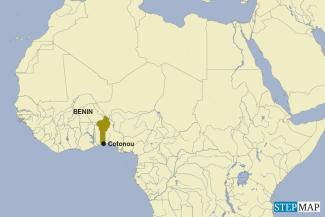Corruption
Looting the state coffers

But if President Talon was expecting the existence of CRIET to deter such crimes, he got it wrong. Cases of corruption and embezzlement are as high as ever. Among the more notorious recent cases is that of one of Mr. Talon’s ministers and political supporters, Barnabé Dassigli. Following persistent allegations that Dassigli had masterminded a shady land deal, Talon had to fire him and refer his case to CRIET.
But there is a problem: Only the High Court of Justice, not CRIET, can prosecute former ministers, according to Benin’s constitution. Moreover, the trial cannot go forward until two-thirds of Benin’s members of parliament (MPs) agree. That could take years. MPs are not particularly eager to send their political allies to court, particularly since facts could come out at trial that embarrass the ruling elite.
Indeed, the pattern in such cases has been for politicians to delay a decision in hopes that voters forget about the case. In its 20 years of existence the High Court of Justice has not prosecuted a single government minister. While this matter is pending in parliament, Dassigli can walk free.
For politicians lower down in the hierarchy, the outlook is not as good. Georges Bada, a former mayor of the town of Abomey-Calavi near Cotonou, did have to stand trial before the CRIET. Although he, like Dassigli, is a supporter of Talon, Bada was found guilty of misappropriating 39 hectares of government land and was sentenced to a six-year jail term. He also must pay a fine of 5 million CFA francs (approximately US$ 8,900).
Another case of massive fraud took place over a four-year period at the National Road Transport Agency, known as Anatt (Agence Nationale des Transports Terrestres) in local parlance. Between 2016 and 2020, Anatt’s senior managers helped some 2,600 car owners evade customs duties.
These car owners bribed their way through customs and received license plates without paying import duties. The government says this scam cost the state more than 13 billion CFA francs (about US$ 23 million) – a huge sum for a low-income country like Benin. When the fraud became known, the Office of the President ordered the guilty parties to reimburse the state. The fraudsters may also be prosecuted before a state court.
In a separate case, members of Anatt’s senior management team were found guilty of receiving illegal allowances such as a 13th monthly salary. And they were accused of using tens of millions of CFA francs ostensibly to buy gasoline for state vehicles at high prices in privately-owned gas stations – while actually filling cars up with the cheap, adulterated fuel widely available along roadsides.
Other cases of embezzlement are still awaiting prosecution. A former agent of the national tax service has been accused to stealing 4 billion CFA francs (about US$ 7 million). After a long manhunt he was found in Senegal and extradited to Benin where he will stand trial.
Meanwhile, hundreds of billions of CFA francs are missing from various state-owned companies. The public has yet to find out the identities of suspected embezzlers. But as such cases pile up, the public is quickly losing faith in the ability of special courts and official pronouncements to stem Benin’s seemingly endless tide of corruption.
Karim Okanla is a media scholar and freelance author based in Benin.
karimokanla@yahoo.com












